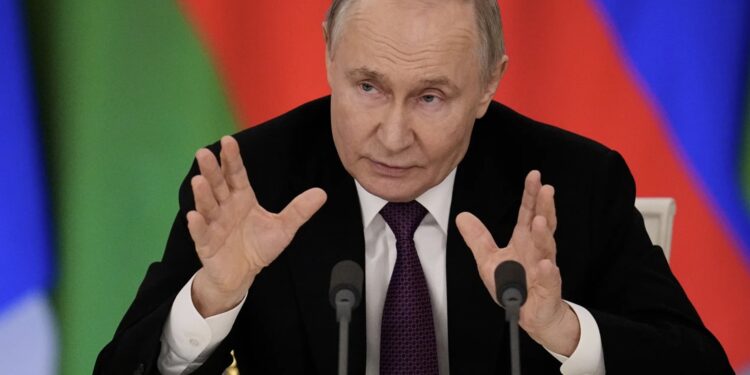The European Union, along with allies including Britain, has escalated sanctions against Russia and those who are thought to be supporting President Vladimir Putin’s destabilizing actions. The new moves are a response to what European officials call “hybrid threats” and increasing rates of cyberattacks that they have blamed on Russian-linked agents.
Here are some of the highlights:
Targeting “Shadow Fleet”
Much of the sanctions are related to Russia’s so-called “shadow fleet” of ships being utilized to sidestep already existing restrictions on trading in oil. The E.U.’s list of sanctioned ships was extended, with the aim of hitting Russia’s potential income from oil sales.
Combating Hybrid Threats
They also punish what is known as “hybrid warfare,” including such acts as jamming GPS signals and sabotaging undersea cables, as well as spreading disinformation. Organizations that participate in these activities, e.g. General Radio Frequency Center (GRFC), have been hit.
Cybersecurity Measures
The EU has blacklisted companies and individuals involved in web hosts and other forms of facilitation for cyber espionage and efforts to disrupt online operations.
Individuals and Groups
The sanctions are asset freezes and travel bans on individuals and organizations the West believes are supporting Putin’s plans. This targets those participating in spreading propaganda, and those who partake in actions destabalizing european nations.
Disrupting Supply Chains
The UK has already stepped up sanctions designed to disrupt the supply chains of russian arms.
International Coordination
The moves are part of a concerted effort by Europe to step up pressure against Russia and curb its ability to undertake hostile activities.
The measures taken by the EU signal strong willingness to resist Russia’s multi-pronged threats and a determination to enhance European security. The emphasis on traditional measures, as well as in the new arena of cyber and hybrid war, reflects the changing face of global war.










![Online Scam Cases Continue to Rise Despite Crackdowns on Foreign Fraud Networks [Myanmar] Online Scam Cases Continue to Rise Despite Crackdowns on Foreign Fraud Networks [Myanmar]](https://sumtrix.com/wp-content/uploads/2025/06/30-12-120x86.jpg)





